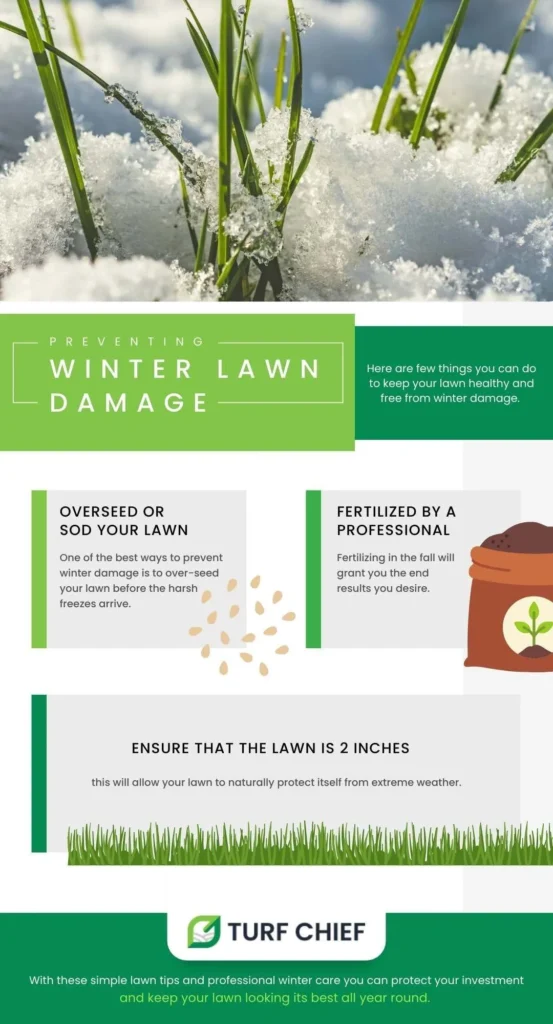Introduction
Winter can be tough on your lawn. The cold weather, snow, and ice can cause damage. But, with the right care, you can keep your lawn healthy. This guide will help you learn the best practices for preventing winter lawn damage.
Why Winter Lawn Care is Important
Winter lawn care is crucial. It helps your grass survive the cold months. Proper care can also make your lawn look great in spring. Without it, your lawn may suffer. This can lead to brown patches and weak grass.

Credit: www.searshomeservices.com
Steps to Prevent Winter Lawn Damage
Follow these steps to protect your lawn during winter:
- Keep Your Lawn Clean: Remove leaves and debris. This prevents mold and disease.
- Mow Your Lawn: Cut your grass to the right height. Short grass can handle winter better.
- Fertilize Your Lawn: Use a winter fertilizer. It helps your grass stay strong.
- Aerate Your Lawn: Aerating allows water and nutrients to reach the roots.
- Water Your Lawn: Water your lawn before the ground freezes. This prevents dehydration.
Best Practices Explained
Keep Your Lawn Clean
Leaves and debris can smother your grass. This can lead to mold and diseases. Rake your lawn regularly. This keeps it clean and healthy.
Mow Your Lawn
Grass that is too long can get matted down by snow. This can lead to disease. Mow your lawn to about 2.5 to 3 inches. This is the ideal height for winter.
Fertilize Your Lawn
Use a winter fertilizer. It should be high in potassium. Potassium helps strengthen your grass. This makes it more resistant to cold and disease.
Aerate Your Lawn
Aerating your lawn creates small holes. These holes allow water, air, and nutrients to reach the roots. This helps your grass stay healthy during winter.
Water Your Lawn
Grass still needs water in the winter. Water your lawn before the ground freezes. This helps prevent dehydration. But, don’t overwater. Too much water can lead to mold.
Common Winter Lawn Problems
Knowing the common problems can help you prevent them:
| Problem | Cause | Solution |
|---|---|---|
| Snow Mold | Heavy snow and wet conditions | Rake your lawn and keep it dry |
| Brown Patches | Cold and lack of nutrients | Fertilize and water your lawn |
| Frost Damage | Sudden temperature drops | Keep your grass at the right height |

Credit: turfchief.com
Additional Tips
- Don’t walk on frozen grass: Walking on frozen grass can cause damage.
- Use mulch: Mulch can protect your grass roots from cold.
- Check for pests: Some pests can survive winter. Look for signs of damage.
Frequently Asked Questions
How To Protect Lawn From Frost Damage?
Cover your lawn with breathable fabric during frosty nights to retain heat and prevent frost damage.
Can Snow Damage My Lawn?
Yes, heavy snow can compact soil and suffocate grass. Clear snow periodically to avoid these issues.
Should I Fertilize My Lawn In Winter?
Avoid fertilizing in winter. It’s best to fertilize in early fall to prepare grass for winter dormancy.
How To Prevent Lawn Disease In Winter?
Ensure proper drainage and avoid over-watering. Remove debris to prevent fungal growth during winter months.
Conclusion
Winter lawn care is important. It helps your grass survive the cold months. Follow these best practices to keep your lawn healthy. With the right care, your lawn will look great in spring.
